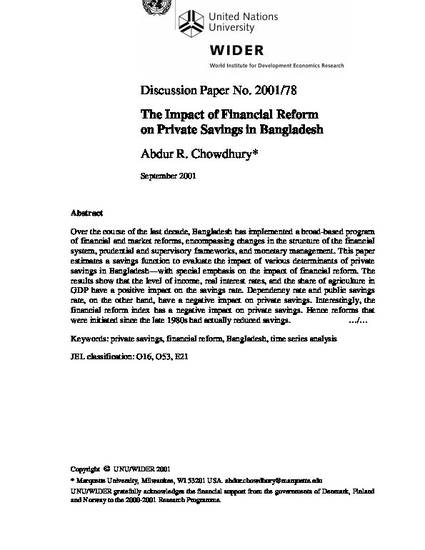
Over the course of the last decade, Bangladesh has implemented a broad-based program of financial and market reforms, encompassing changes in the structure of the financial system, prudential and supervisory frameworks, and monetary management. This paper estimates a savings function to evaluate the impact of various determinants of private savings in Bangladesh—with special emphasis on the impact of financial reform. The results show that the level of income, real interest rates, and the share of agriculture in GDP have a positive impact on the savings rate. Dependency rate and public savings rate, on the other hand, have a negative impact on private savings. Interestingly, the financial reform index has a negative impact on private savings. Hence reforms that were initiated since the late 1980s had actually reduced savings.
Available at: http://works.bepress.com/abdur_chowdhury/92/

Published version. WIDER-Discussion Papers, No. 78 (2001). Permalink. © 2001 UNU-WIDER. Used with permission.